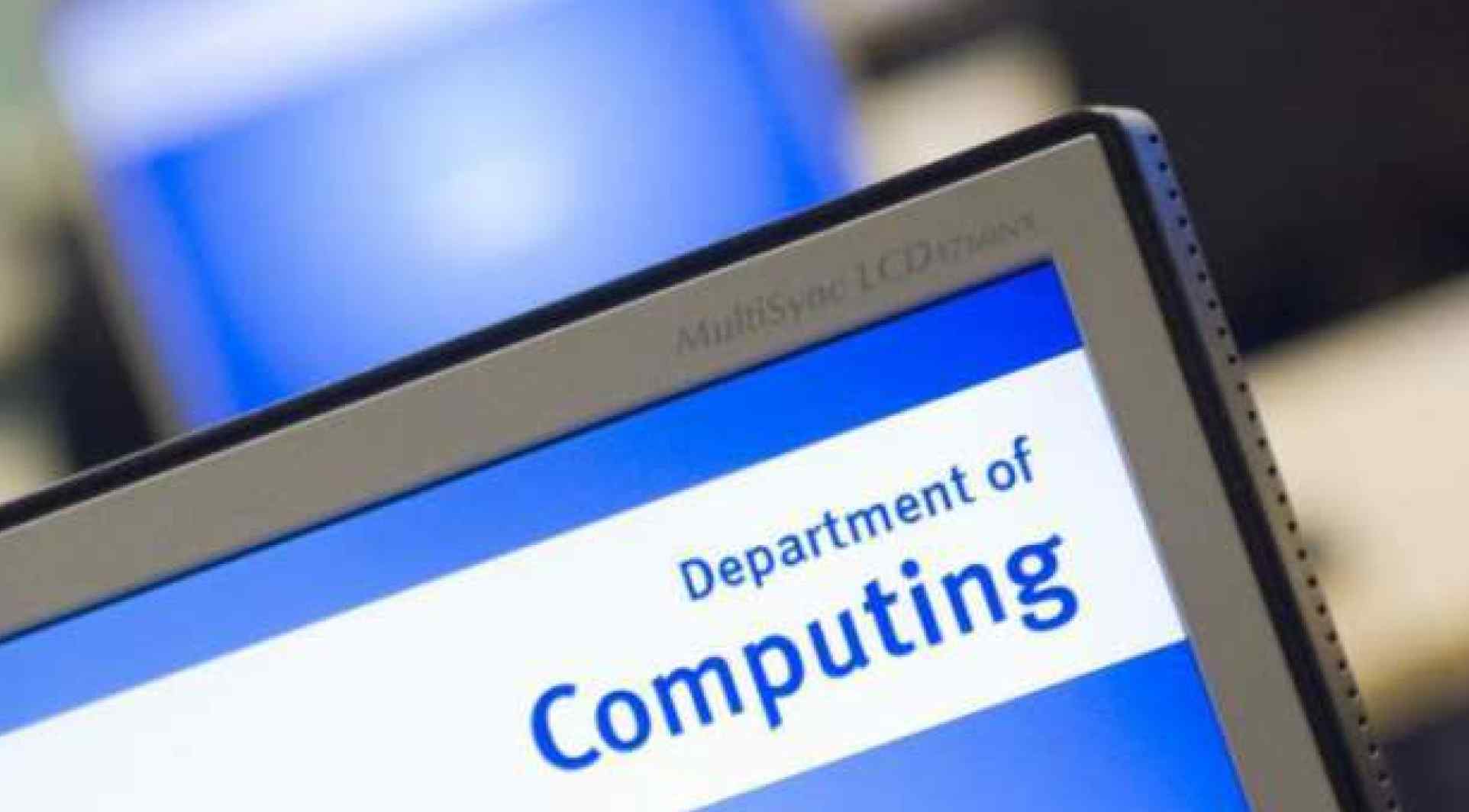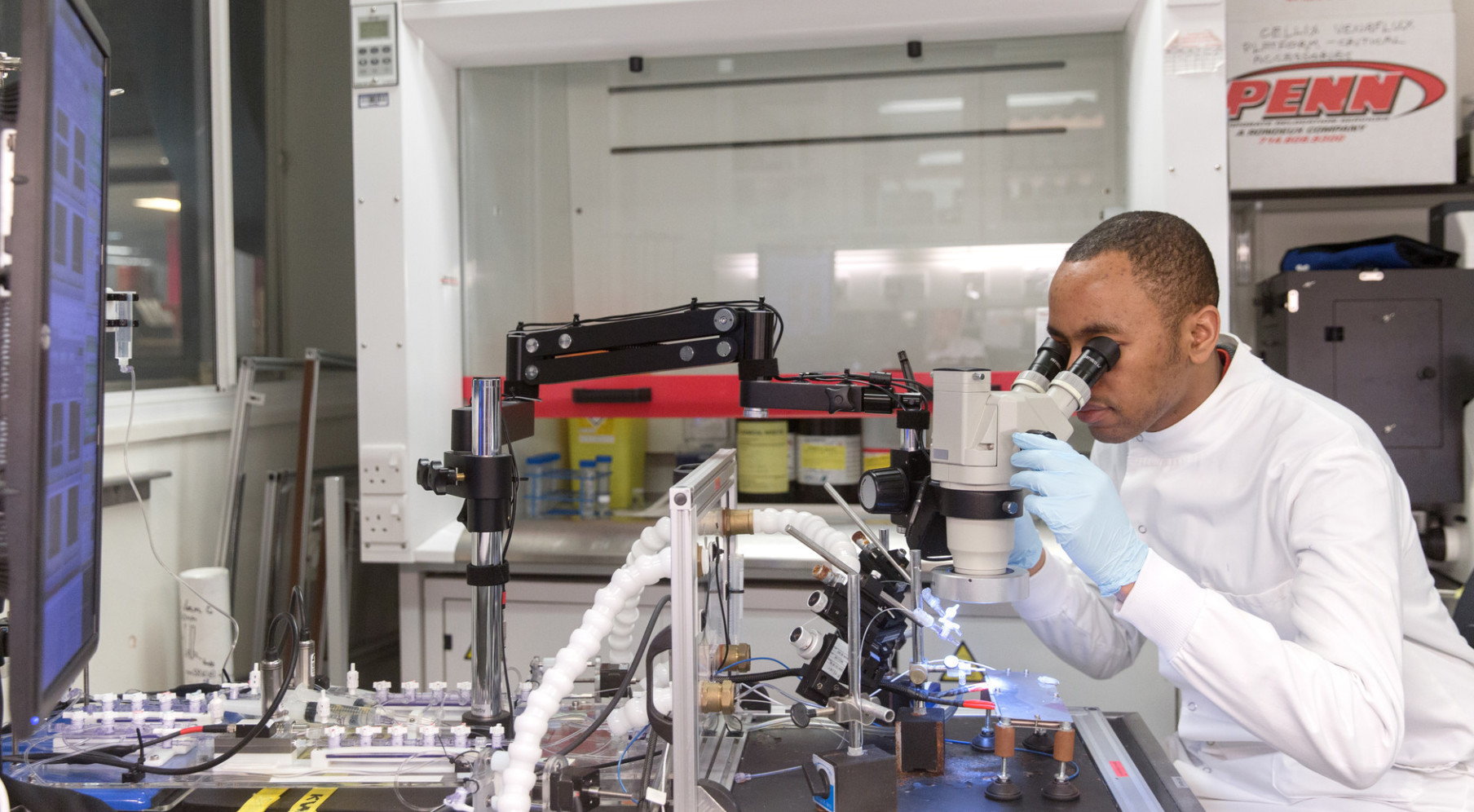MSc Computing (Security and Reliability)

Deepen your understanding and knowledge of computer science to prepare for a career in the computing industry
Key information
Overview
This taught postgraduate course is aimed at students who may not have studied computing exclusively but who have studied a considerable amount of computing already.
If you want to become a specialist in a particular area of computing, this course will provide a first crucial step towards that goal.
This course specialises in the processes and mechanisms by which computer-based equipment, information and services are protected from unintended or unauthorised access. We also offer specialisms in:
- Artificial Intelligence and Machine Learning
- Computational Management
- Software Engineering
- Visual Computing and Robotics
Each specialism has a flexible mix of breadth and depth, consisting of two or three compulsory modules as well as choices from a selection of core and optional modules.
Professional accreditation
Our MSc Computing Master's degrees are professionally accredited by the IET (Institute of Engineering and Technology) until and including the 2022-23 academic year.
Holding an accredited degree allows you to meet the academic requirement for registration as a Chartered Engineer (CEng). Registering as a Chartered Engineer will help provide improved career prospects, status, higher earning potential. It helps demonstrate your commitment to professional standards, the engineering profession and sustainable development.
Structure
This page reflects the latest version of the curriculum for this year of entry. However, this information is subject to change.
The curriculum of this programme is currently being reviewed as part of a College-wide process to introduce a standardised modular structure. As a result, the content and assessment structures of this course may change for this year of entry.
We recommend you check this page before finalising your application and again before accepting your offer. We will update this page as soon as any changes are confirmed by the College.
Find out more about the limited circumstances in which we may need to make changes to or in relation to our courses, the type of changes we may make and how we will tell you about any changes made.
Page last reviewed on 10 March 2022.
Structure
Core module
You take the core module below.
- MSc Computing Science (Specialist) Individual Project
Optional modules
You choose three to five modules from below.
Group 1
- Network and Web Security
- Advanced Computer Architecture
- System Performance Engineering
- Type Systems for Programming Languages
- Scalable Software Verification
- Concurrent Processes
- Privacy Engineering
- Scalable Systems and Data
- Complexity
- Software Reliability
- Advanced Computer Security
- Principles of Distributed Ledgers
- Program Analysis
- Software Engineering for Industry
- Probabilistic Inference
- Mathematics for Machine Learning
- Modal Logic for Strategic Reasoning in AI
- Cryptography Engineering
- Scheduling and Resource Allocation
Group 2
- Logic-Based Learning
- Computer Vision
- Graphics
- Custom Computing
- Robotics
- Operations Research
- Distributed Algorithms
- Advanced Computer Graphics
- Computational Finance
- Deep Learning
- Computational Optimisation
- Natural Language Processing
- Knowledge Representation
- Independent Study Option
- Introduction to Machine Learning
- Advanced Databases
- Decentralised Finance
- Robot Learning and Control
- Prolog
Entry requirements
We welcome students from all over the world and consider all applicants on an individual basis.
Admissions
Minimum academic requirement
Our minimum requirement is a first-class degree in a subject with a substantial computing component.
International qualifications
We also accept a wide variety of international qualifications.
The academic requirement above is for applicants who hold or who are working towards a UK qualification.
For guidance see our Country Index though please note that the standards listed are the minimum for entry to the College, and not specifically this Department.
If you have any questions about admissions and the standard required for the qualification you hold or are currently studying then please contact the relevant admissions team.
English language requirement (all applicants)
All candidates must demonstrate a minimum level of English language proficiency for admission to the College.
For admission to this course, you must achieve the higher College requirement in the appropriate English language qualification. For details of the minimum grades required to achieve this requirement, please see the English language requirements for postgraduate applicants.
How to apply
Making an application
Apply online
All applicants must apply online.
Visit our Admissions website for details on the application process.
You can submit one application form per year of entry. You can usually choose up to two courses.
Application fee
If you are applying for a taught Master’s course, you will need to pay an application fee before submitting your application.
The fee applies per application and not per course:
- £80 for taught Master's applications (excluding MBAs)
- £135 for MBA applications
There is no application fee for MRes courses, Postgraduate Certificates, Postgraduate Diplomas or research courses, such as PhDs and EngDs.
If you are facing financial hardship and are unable to pay the application fee, we encourage you to apply for our application fee waiver.
ATAS certificate
An ATAS certificate is not required for overseas students applying for this course.
Further questions?
Find answers to your questions about admissions. Answers cover COVID-19, English language requirements, visas and more.
Tuition fees and funding
The level of tuition fees you pay is based on your fee status, which we assess based on UK government legislation.
Find out more about fees and funding opportunities.
Tuition fees
Home rate of tuition
2022 entry
£19,450
Fees are charged by year of entry to the College and not year of study.
Except where otherwise indicated, the fees for students on courses lasting more than one year will increase annually by an amount linked to inflation, including for part-time students on modular programmes. The measure of inflation used will be the Retail Price Index (RPI) value in the April of the calendar year in which the academic session starts e.g. the RPI value in April 2022 will apply to fees for the academic year 2022–2023.
Fee status
Whether you pay the Home fee depends on your fee status.
Your fee status is assessed based on UK Government legislation and includes things like where you live and your nationality or residency status.
Find out more about how we assess your fee status.
EU/EEA/Swiss students
The Government has confirmed that EU/EEA/Swiss students who begin a course before the 31 July 2021 will be eligible to pay the same fee as Home students and have access to student finance for the duration of their course, as long as they meet certain requirements which are unchanged from previous years. This includes students who begin the course remotely.
EU/EEA/Swiss students starting a course on or after 1 August 2021 will no longer be eligible for the Home fee rate and so will be charged the Overseas fee. Please note we do not expect this to apply to Irish students or students benefitting from Citizens' rights under the EU Withdrawal Agreement, EEA EFTA Separation Agreement or Swiss Citizens’ Rights Agreement respectively. However, we are currently awaiting the formal publication of the amended Fees and Awards regulations.
The UK Council for International Student Affairs (UKCISA) website has useful information on the conditions you currently need to meet to be entitled to pay tuition fees at the Home rate for study on a higher education course in England and reflect the regulations as they currently stand (not the amended regulations which are subject to publication).
UKCISA has also provided some information in response to Questions for students starting their course from the 1 August 2021.
Overseas rate of tuition
2022 entry
£36,500
Fees are charged by year of entry to the College and not year of study.
Except where otherwise indicated, the fees for students on courses lasting more than one year will increase annually by an amount linked to inflation, including for part-time students on modular programmes. The measure of inflation used will be the Retail Price Index (RPI) value in the April of the calendar year in which the academic session starts e.g. the RPI value in April 2022 will apply to fees for the academic year 2022-2023.
Fee status
Whether you pay the Overseas fee depends on your fee status.
Your fee status is assessed based on UK Government legislation and includes things like where you live and your nationality or residency status.
Find out more about how we assess your fee status.
EU/EEA/Swiss students
The Government has confirmed that EU/EEA/Swiss students who begin a course before the 31 July 2021 will be eligible to pay the same fee as Home students and have access to student finance for the duration of their course, as long as they meet certain requirements which are unchanged from previous years. This includes students who begin the course remotely.
EU/EEA/Swiss students starting a course on or after 1 August 2021 will no longer be eligible for the Home fee rate and so will be charged the Overseas fee. Please note we do not expect this to apply to Irish students or students benefitting from Citizens' rights under the EU Withdrawal Agreement, EEA EFTA Separation Agreement or Swiss Citizens’ Rights Agreement respectively. However, we are currently awaiting the formal publication of the amended Fees and Awards regulations.
The UK Council for International Student Affairs (UKCISA) website has useful information on the conditions you currently need to meet to be entitled to pay tuition fees at the Home rate for study on a higher education course in England and reflect the regulations as they currently stand (not the amended regulations which are subject to publication).
Postgraduate Master's loan
If you're a UK national, or EU national with settled or pre-settled status under the EU Settlement Scheme, you may be able to apply for a Postgraduate Master’s Loan from the UK government, if you meet certain criteria.
For 2022-23 entry, the maximum amount is £11,836. The loan is not means-tested and you can choose whether to put it towards your tuition fees or living costs.
Scholarships
We offer a range of scholarships for postgraduate students to support you through your studies. Find out more about our scholarships to see what you might be eligible for.
A number of external organisations also offer awards for Imperial students. Find out more about non-Imperial scholarships.
Accommodation and living costs
Living costs, including accommodation, are not included in your tuition fees.
You can compare costs across our different accommodation options on our Accommodation website.
A rough guide to what you might expect to spend to live in reasonable comfort in London is available on our Fees and Funding website.
Further information

Got a question?
T: +44 (0) 20 7594 8298
E: doc-mscadmissions@imperial.ac.uk

Sign up for our newsletter
Receive regular updates with useful information about studying with us.

Studying at Imperial

Living in London
London’s fusion of culture and charm will give you a student experience unlike any other.

Student finance
Our tuition fees website has everything you need to know about funding your studies.

International students
Imperial is ranked as the UK's most international university, welcoming students from over 140 countries.
Terms and conditions
There are some important pieces of information you should be aware of when applying to universities. We've put together this information in a dedicated section of our website.
Read our terms and conditions for these areas:


